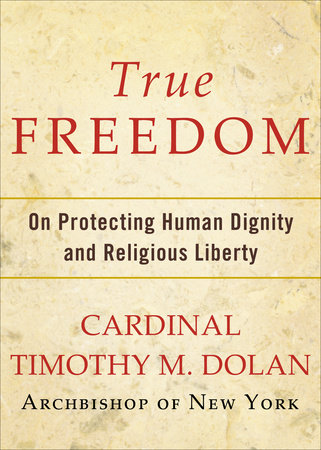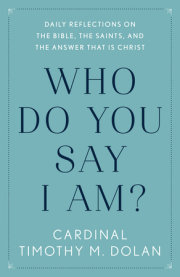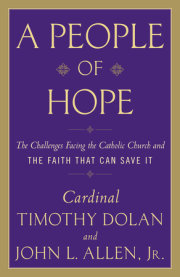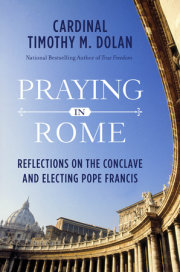When I was a newly ordained priest, one of my weekly assignments was to visit an elderly couple who lived in
the parish. Every Friday I'd bring them Holy Communion, and would spend some time just sitting and talking
with them. The husband was severely disabled and had lost the ability to speak, and the only way he was able
to communicate was through a series of blinks and eye movements. I couldn't understand him on my own, but
his loving wife, who cared for him so tenderly, was able to translate. What started out as a duty quickly turned
into one of my favorite times in the whole week, as I got to know this couple, so obviously devoted to each
other and still very much in love after many years of marriage.
One of the things that always struck me during my visits was their serenity, a real sense of inner peace. They
always seemed very happy to see me, and went out of their way to make a rookie priest feel comfortable and
welcome.
After three years, I was assigned to a different parish, and stopped by for my final Friday. I felt moved to tell
them how grateful I was for their kindness to me, and how much I was going to miss our weekly get-togethers
I told the wife how impressed I was by her patience and with her husband, and I told the husband what an
inspiration he had been to me. "In the eyes of the world, you're in bad shape. You're unable to move, unable
to talk, unable to do so many of the things that most of us take for granted and consider necessary for a useful
and productive life. And yet, in all the weeks that I've been coming here, you've never once complained, or
asked 'why did God allow this to happen to me.' What's your secret?"
His wife held his hand as he blinked-out his reply, and passed it on to me. "Just to live is itself a gift from
God," he told me. "Every morning when I wake up I am so happy to be alive for another day, that I cherish the
opportunity that I've been given."
That, to me, is still one of the best definitions about the dignity of life that I've ever heard. It summarizes the
beauty and dignity of life itself, a beauty and dignity that go beyond what we're able to do, what we're able to
accomplish. It also gets to the heart of what Blessed John Paul II was getting at in his monumental 1995
encyclical, Evangelium Vitae, the Gospel of Life. His fundamental thesis is that human life is sacred, and thus
merits dignity, in and of itself, not just for what it can accomplish, achieve, or produce. John Paul II directs his
teaching, not just to Catholics; not just to Christians or people of faith; but "to all people of good will." This is
rather important. True enough, his teaching is expressed in terms of religious belief and teaching, but this
fundamental concept of the sacredness of all human life, which deserves dignity, respect, and protection by
law -- is rooted in natural law, a source of ingrained principles accessible to all, not just religious folks.
Copyright © 2012 by Cardinal Timothy Dolan, Archbishop of New York. All rights reserved. No part of this excerpt may be reproduced or reprinted without permission in writing from the publisher.






